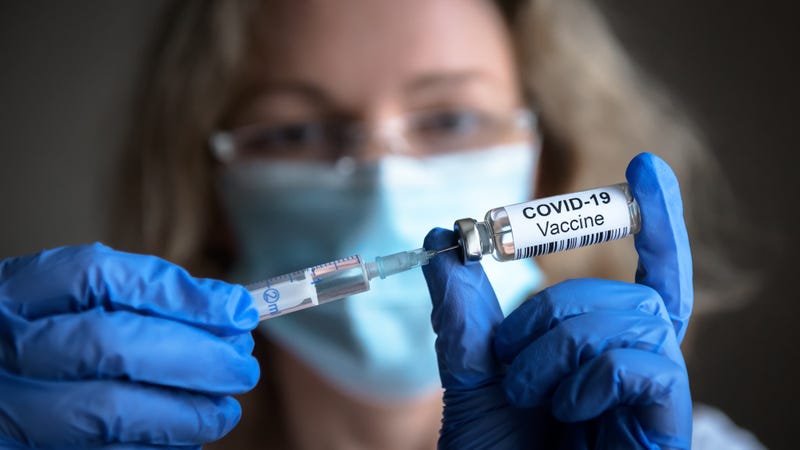
The FDA is meeting Friday to decide whether they will recommend a third dose of the Pfizer vaccine, or booster shots.
Each type of vaccine’s third jab needs to be evaluated independently, so after Moderna submits their testing and research for their booster shot, the FDA will vote on them as well.
But it’s still unclear what direction the FDA will go on Friday, according to Dr. John Swartzberg, UC Berkeley Clinical Professor of Medicine and an expert in infectious diseases on Thursday's "Ask an Expert" with KCBS Radio's Holly Quan and Dan Mitchinson.

"My best guess is that they’re going to advise a third jab for older people, healthcare workers, maybe some other groups that are at high risk for serious disease from COVID-19," he said.
Swartzberg said he would be surprised if they didn’t approve them for high-risk groups. But it would also be surprising if they recommended them for the general population since it appears as if the momentum is moving away from recommending the third jab for everyone.
But there is no question right now that people who are immunocompromised, who’ve recently received transplants, should get the third shot.
Pfizer is using data from Israel to support their third jab, which has been offering it over the summer and are now even offering a fourth one. According to Swartzberg, that data comes with some caveats. "It’s important to remember that Israel is the size of the Bay Area," he said. The data is not indicative of what would happen in the United States, where there are far fewer people vaccinated and the population is more diverse.
A study posted in the New England Journal on Wednesday showed that while the third jab was beneficial in people 60 and older in Israel, the protection doesn’t last that long, up to about four months. "Is that really enough to justify immunizing a large swath of the population?" said Swartzberg.
Ultimately, it just doesn’t seem feasible to make a third shot available for everyone in the general population in the United States. To roll out a third dose and try to administer it to over 200 million people just "to prevent people from getting a cold," said Swartzberg, is difficult to justify.

